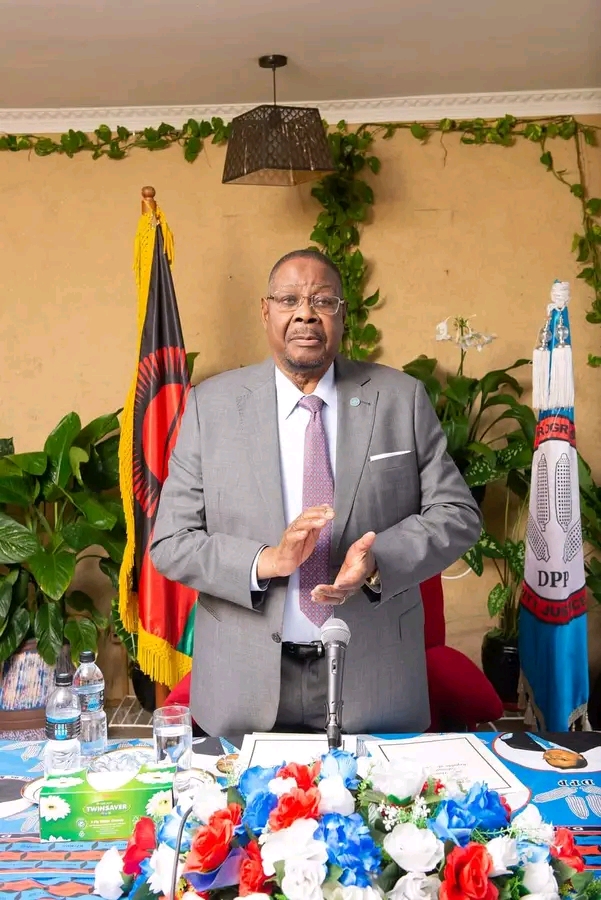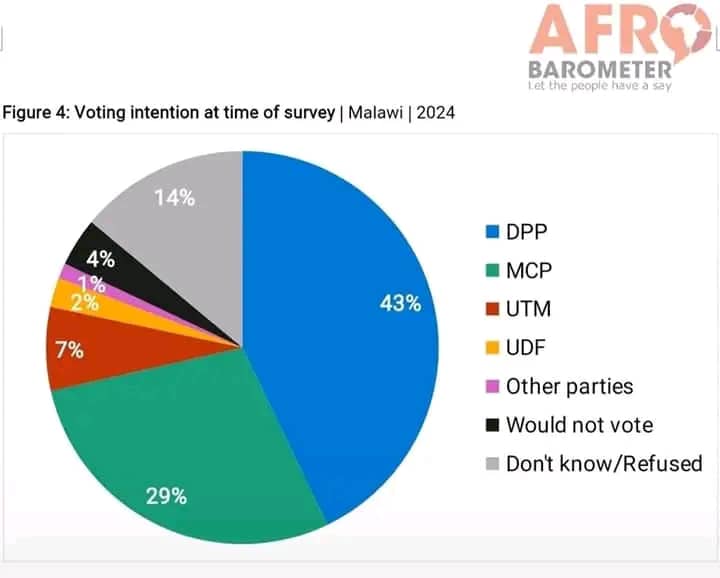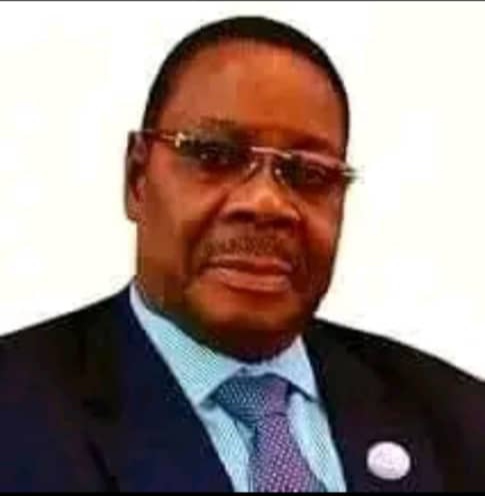By Jones Gadama
The Democratic Progressive Party (DPP) finds itself at a critical juncture.
As the party engages in discussions with potential alliance partners, the question of leadership looms large.
At the forefront of this conversation is Arthur Peter Mutharika, the former president and a figure whose political acumen and experience could prove pivotal in shaping the future of the DPP and its allies. The necessity of positioning Mutharika as the presidential candidate in any forthcoming alliance cannot be overstated.
His leadership is not merely a matter of preference; it is a strategic imperative that could determine the success or failure of the coalition in the face of formidable opposition, particularly from the Malawi Congress Party (MCP).
Mutharika’s tenure as president from 2014 to 2020 was marked by significant achievements and challenges.
His administration focused on economic growth, infrastructure development, and social programs aimed at improving the lives of Malawians.
While his presidency was not without controversy, Mutharika’s ability to navigate the complexities of governance and his experience in international diplomacy have endowed him with a unique skill set that is invaluable in the current political climate.
The DPP’s alliance partners must recognize that Mutharika’s leadership is not just about continuity; it is about leveraging his established political capital to galvanize support and foster unity among disparate factions.
One of the most compelling reasons for endorsing Mutharika as the presidential candidate is his status as a “winning formula.” In the 2019 elections, despite facing significant challenges, Mutharika managed to secure a substantial portion of the vote, demonstrating his enduring appeal among the electorate.
His ability to connect with voters, particularly in rural areas, is a testament to his grassroots support. In contrast, the MCP, led by Lazarus Chakwera, has struggled to maintain a cohesive narrative that resonates with all segments of the population.
By positioning Mutharika as the presidential candidate, the DPP can capitalize on his established voter base and mitigate the risks associated with presenting a less familiar face to the electorate.
Moreover, Mutharika’s candidacy sends a clear message of stability and experience in a time of uncertainty.
The political landscape in Malawi is fraught with challenges, including economic instability, social unrest, and the lingering effects of the COVID-19 pandemic.
In such a context, voters are likely to gravitate towards a leader who embodies resilience and has a proven track record of governance. Mutharika’s experience in handling crises, both domestically and internationally, positions him as a stabilizing force that can reassure voters and instill confidence in the DPP’s ability to lead effectively.
The DPP’s alliance partners must also consider the implications of Mutharika’s candidacy for their own political fortunes.
Aligning with a well-known and respected leader can enhance the credibility of smaller parties within the coalition, providing them with a platform to amplify their voices and agendas.
Mutharika’s leadership can serve as a unifying force, bringing together diverse political ideologies and interests under a common banner. This is particularly important in a multiparty system where fragmentation can lead to electoral defeat.
By rallying around Mutharika, alliance partners can present a formidable front against the MCP and other opposition parties, increasing their chances of electoral success.
Furthermore, Mutharika’s candidacy is crucial for maintaining the DPP’s identity and core values.
The party has historically championed economic development, social justice, and national sovereignty. Mutharika embodies these principles, and his leadership can help reinforce the DPP’s commitment to its foundational ideals. In contrast, presenting a new candidate may dilute the party’s message and alienate its traditional base.
The DPP must remain true to its roots while adapting to the evolving political landscape, and Mutharika’s leadership provides a bridge between the past and the future.
In addition to the strategic advantages of Mutharika’s candidacy, there is also a psychological dimension to consider. The political rivalry between the DPP and the MCP has created a charged atmosphere in which perceptions of strength and leadership are paramount. Mutharika’s presence as the presidential candidate can instill a sense of fear and apprehension within the MCP, potentially dissuading them from aggressive campaigning and galvanizing their base.
The psychological impact of having a seasoned leader at the helm cannot be underestimated; it can influence voter sentiment and sway undecided voters who may be looking for a strong and capable leader to guide the nation through turbulent times.
Moreover, Mutharika’s candidacy aligns with the broader narrative of continuity and stability that many voters seek in times of change. As Malawi navigates the complexities of post-pandemic recovery, the electorate may be more inclined to support a leader who has demonstrated the ability to govern effectively in the past.
Mutharika’s experience in managing economic challenges and fostering international relations positions him as a candidate who can provide the stability and continuity that voters crave. This narrative can be a powerful tool in the DPP’s campaign strategy, allowing them to frame the election as a choice between experienced leadership and untested alternatives.
The DPP’s alliance partners must also recognize the importance of a cohesive and unified front in the face of opposition. The political landscape in Malawi is characterized by shifting alliances and unpredictable electoral dynamics. By rallying around Mutharika as the presidential candidate, the DPP can present a united front that signals strength and determination to both voters and opponents.
This unity is essential for mobilizing resources, coordinating campaign efforts, and ensuring that the coalition remains focused on common goals. A fragmented approach, on the other hand, could lead to infighting and weaken the coalition’s chances of success.
The DPP’s decision to position Arthur Peter Mutharika as the presidential candidate in any forthcoming alliance is not merely a matter of preference; it is a strategic necessity. Mutharika’s experience, political capital, and ability to connect with voters make him an invaluable asset in the current political climate. His candidacy represents a winning formula that can galvanize support, instill confidence, and foster unity among alliance partners.
As the DPP navigates the complexities of coalition politics, it is imperative that they recognize the importance of strong leadership and the potential for Mutharika to serve as a stabilizing force in a time of uncertainty. By embracing Mutharika’s candidacy, the DPP can position itself for success in the upcoming elections and ensure that it remains a formidable player in the Malawian political landscape.




